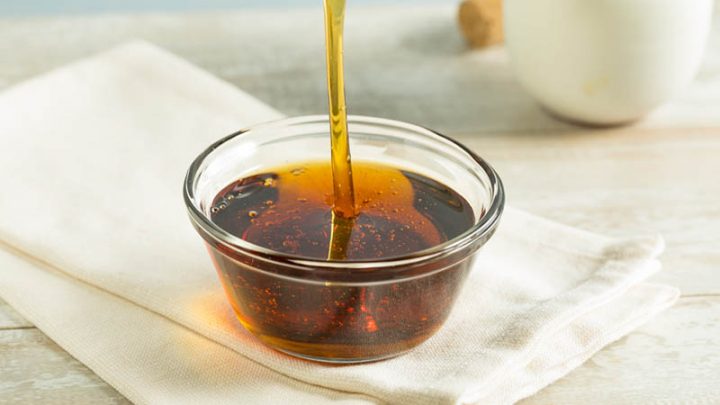As a new mom, you’ll be very aware of how harmful sugar can be for your health – especially when it comes to a baby who is in the process of developing.
This means you’re probably looking for a safe alternative, for example a sweetener that is safe for children, like agave.
But can babies have agave? Is it a healthy replacement for table sugar?
I’m sure you’ve heard about its numerous medicinal properties.
On the other hand, the last thing you want to do is put your baby in danger by giving her something potentially dangerous for her health.
So, can babies have agave?
Well, the truth is there is no right answer to this question as opinions are split on the matter.
While some experts claim it’s extremely dangerous and unhealthy, others say it’s one of the best natural remedies for a cough.
I have done some research and will give you all the pros and cons of giving agave nectar to young children.
It’s up to you to decide, and as always, talk to your pediatrician to get expert advice.
What Is Agave?
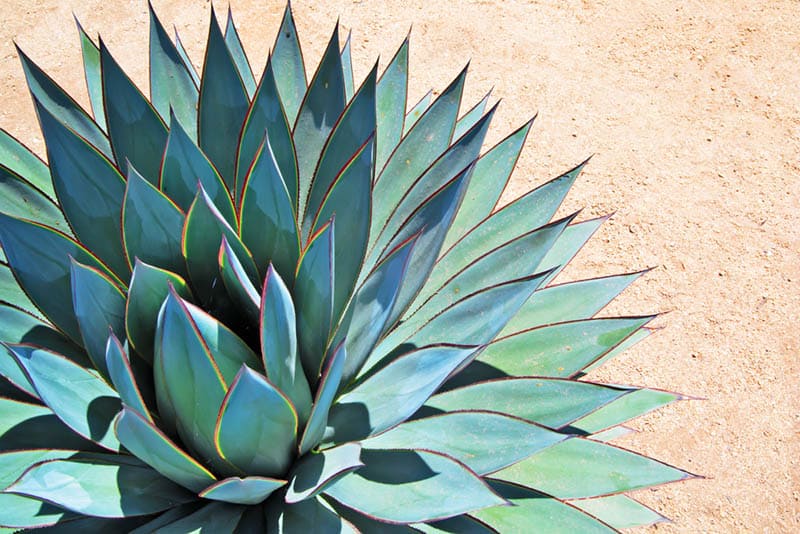
If you trust everything you see on social media and advertisements, without bothering to investigate a little bit further, I’m sure you’ll conclude agave nectar is a completely natural sweetener.
You’ll probably think it must be the safest option available for kids of all ages, little babies included.
After all, because of its nice flavor, agave syrup is often used instead of sugar and maple syrup (it’s even sweeter than maple syrup, but has a lower glycemic index, which is important for every mom out there).
But what is agave? Well, the agave plant is native to Latin America and southern parts of North America.
It’s been used in Latin America, especially Mexico, since the beginning of civilization.
Nevertheless, the old inhabitants of North America didn’t use Agave for its sweet taste alone.
In fact, it was well known for its medical properties too.
They took its sap, boiled it, and ended up with a product they used for many things.
Sap is kind of a plant’s fuel and blood.
It’s a fluid that flows through the plant. Insects usually eat it as it’s full of nutrients.
In fact, agave is still the primary ingredient of tequila. The plant’s core consists of a sweet, flavorful liquid.
That liquid is used to make one of the most famous alcoholic beverages in the world.
You didn’t come here to find out more about tequila though. You’re wondering, can babies have agave?
And you want to know more about this versatile plant.
There is more than one species of Agave, but this article is about Blue agave as that’s what the nectar in question is made of.
First and foremost, you should know the proper name is agave syrup, not nectar.
The word nectar just sounds much more appealing!
Also, the product you can buy at your local grocery store has very little to do with the traditional liquid Mexicans produced thousands of years ago.
Even though the beginning of the production process is quite similar to the traditional one, as it continues it becomes more similar to that of all other sweeteners.
Basically, the problem lies in the fact the production processes ruin all the healthy aspects of this plant.
Can it even be considered healthy after all the cutting, pressing, and extraction?
If not, does it immediately become potentially harmful for your children?
Can Babies Have Agave? The Benefits
Agave has been used since ancient times in dozens of nations around the world.
There must be some positive effects for it to have been used for so long by so many people.
What are the pros of giving it to your baby?
What can it help her with and what makes agave syrup so popular, especially among moms of infants?
Let’s check it out.
Blood sugar levels
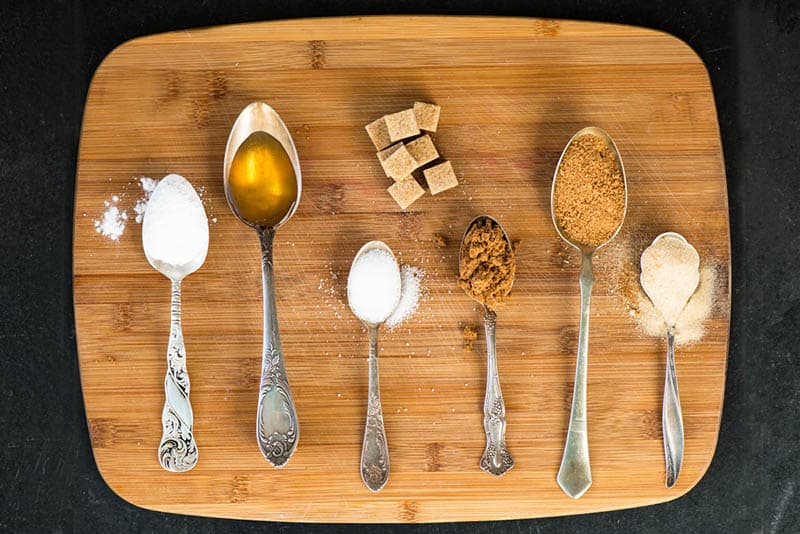
Do you know what a glycemic index, or GI, is? I’m sure you’re at least a little familiar with the fact a high glycemic index is a red flag for your health.
For those of you in the back row, the glycemic index of a food tells you how fast that food increases your blood sugar levels.
High glycemic foods, which can be dangerous for an adult, let alone for a baby, are sugar, white rice, white potato, white bread, etc.
The issue with high GI isn’t just that it makes your blood sugar levels rise uncontrollably, it’s also the fact your blood sugar levels fall quickly after consuming a high GI food like agave.
I’m sure you can imagine what effect this has on your body.
These blood sugar spikes can cause you numerous health problems and even eventually diabetes.
Well, agave nectar is high in fructose.
This is important because fructose is much different than glucose and it produces different reactions in your body.
The moment glucose builds up in your bloodstream, the level of sugar in your blood rises.
Even though your cells must have a certain amount of glucose for use as fuel, the problem arises when too much glucose is in your body.
Too much glucose harms your body in the long run.
It destroys your organs, blood vessels, and nerves.
On the other hand, fructose is quite different in that it does not affect the levels of insulin and blood sugar the way glucose does.
Fructose’s GI is 23, which is low in comparison to glucose’s GI of 100.
Agave nectar mainly contains fructose (even though it also has smaller proportions of glucose) and that’s why it’s considered healthy.
As a result, its glycemic index is also low.
On the other hand, plain sugar and maple syrup contain sucrose (a combination of both glucose and sucrose).
Nevertheless, the glycemic index is not the only factor to pay attention to when determining whether something is healthy or not.
Agave is extremely high in fructose which also has many harmful effects, even though it doesn’t raise your blood sugar levels immediately.
Cough symptoms
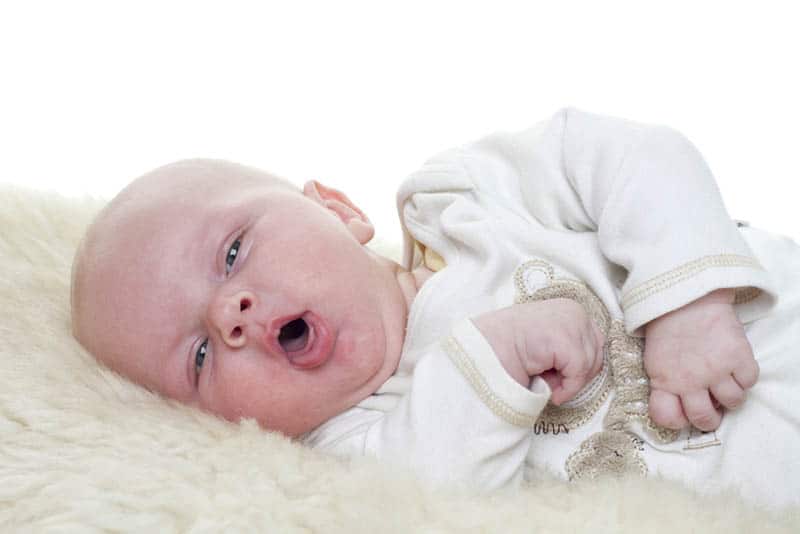
According to some research, foods that contain a lot of sugar can help babies with coughing..
This is especially true for little children and infants.
Your health care provider will rarely ever give you actual medicine to combat coughing for a little one under one year old.
This is largely because cough syrup and other cough medicine cannot be given to children under two years of age, according to the FDA and public health officials.
In fact, the American Academy of Pediatricians and The US Food and Drug Administration banned all over-the-counter cough and cold medications for children younger than four.
This is exactly why a lot of moms turn to natural remedies in an attempt to help their children when they’re suffering from a cough.
Why is honey not recommended for babies?
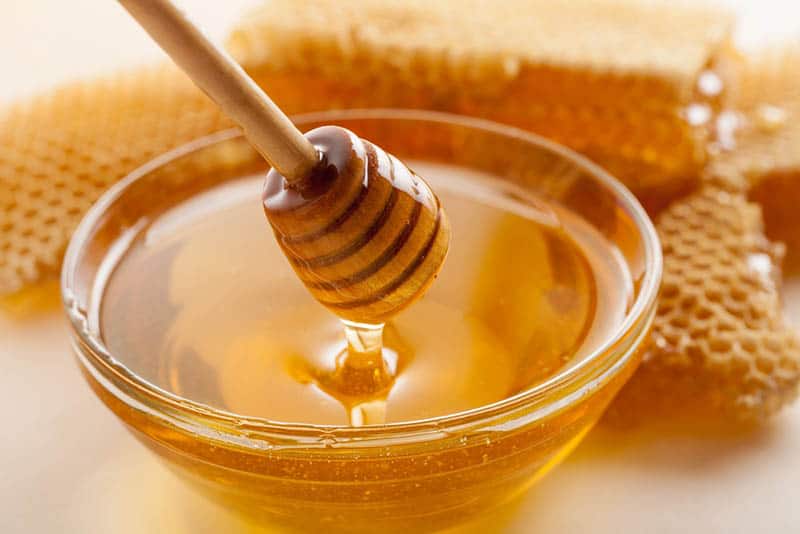
The number one choice for helping with coughs is sweet foods, especially honey.
But I’m sure you know by now that honey or even Honey Nut Cheerios are not recommended for babies under one year of age.
This is because of Clostridium Botulinum, which is a bacteria from dust and soil which is usually found in honey.
Even though Clostridium Botulinum is unlikely to have dangerous consequences for healthy adults and older children, it is very harmful to infants who still haven’t turned one.
This bacteria causes botulism in little babies. Even though this is an extremely rare condition, it is also very dangerous.
Botulism occurs when your little one ingests Clostridium Botulinum from honey.
Some of the most common symptoms are decreased muscle structure, constipation, changes in the suck reflex, tiredness, dropping of the eyelids, fever, and weakness in muscles.
Even though not all honey contains this bacteria, it isn’t a risk you should be taking.
Keep in mind your little one’s immune system is still developing and therefore is not strong enough to fight this dangerous bacteria.
The worst thing is botulism can have long-term consequences, including child paralysis.
Coughing and agave
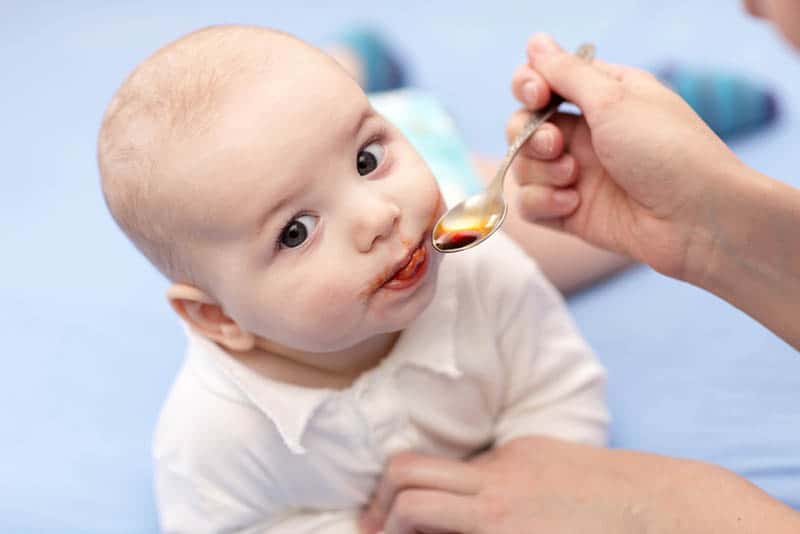
As a result of this, a lot of moms avoid giving honey to their babies and turn to other syrups which are high in fructose (especially high fructose corn syrup).
According to some new studies by the Penn State College of Medicine, published in the Jama Pediatrics Journal, a spoonful of agave syrup has proven to be effective against cough.
In fact, even the placebo effect turned out to be better than “watchful waiting”.
This is especially true when it comes to the cough’s frequency, which reduces with the help of agave nectar.
It also helps with a nighttime cough, which is a real nightmare for both you and the baby.
Not only that, but many claim it’s also excellent for your baby’s throat in general as it calms a sore throat, is a pain reliever, and has anti-inflammatory properties.
All of these things combined calm your baby and help her sleep better at night.
Why Is Agave Potentially Harmful?
Yes, agave has some benefits – nobody can deny that! But is it really all it’s made out to be?
Is agave safe and is it the best alternative to sugar?
Or, can it be potentially harmful? What are the consequences of giving it to your baby? Let’s find out!
Fructose levels
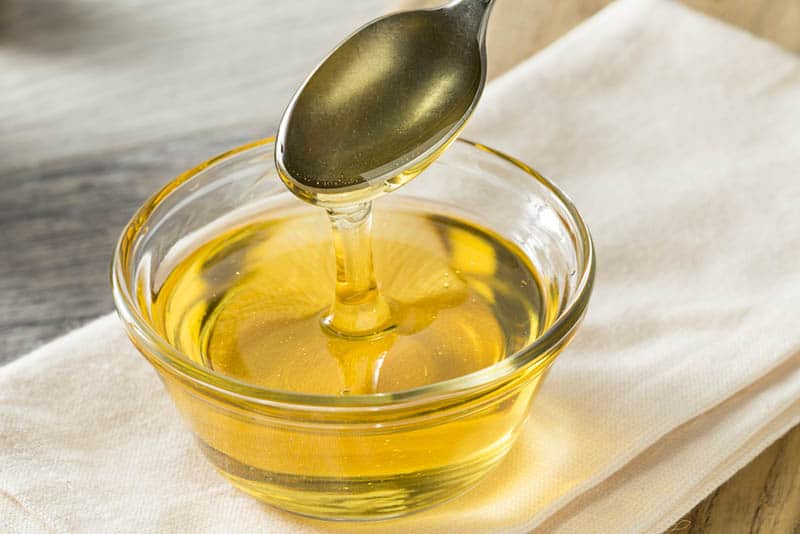
Even though everyone advertises fructose as a healthy sugar replacement, the truth is quite different.
You probably don’t know this, but glucose is also crucial for your body and your body even produces it itself.
Not only that: you can also find glucose in different fruits, vegetables, and honey.
It’s your body’s source of energy, so you can only imagine how significant a molecule of glucose actually is.
I already explained why it’s not recommended for glucose intake to be too high, but about what fructose?
After all, agave syrup has much more fructose than regular sugar.
To be exact, it is made of 85% fructose.
So, is it safe for your infant to ingest a large amount of fructose?
It certainly isn’t.
Insulin resistance
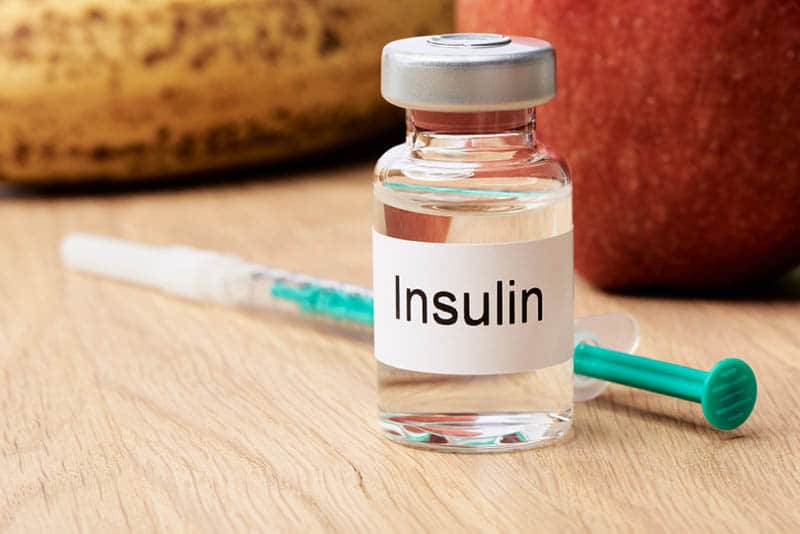
First of all, too much fructose causes insulin resistance.
Simply put, insulin resistance is when your body becomes unable to use the glucose produced by the blood.
To be exact, your liver fails to use this glucose.
This causes the sugar levels in your blood to go up. How does this happen?
Well, your pancreas starts producing more and more insulin.
Insulin resistance is a very dangerous disease and your infant can easily develop it if they have too much fructose.
In fact, it is part of a state called metabolic syndrome.
VLDL cholesterol
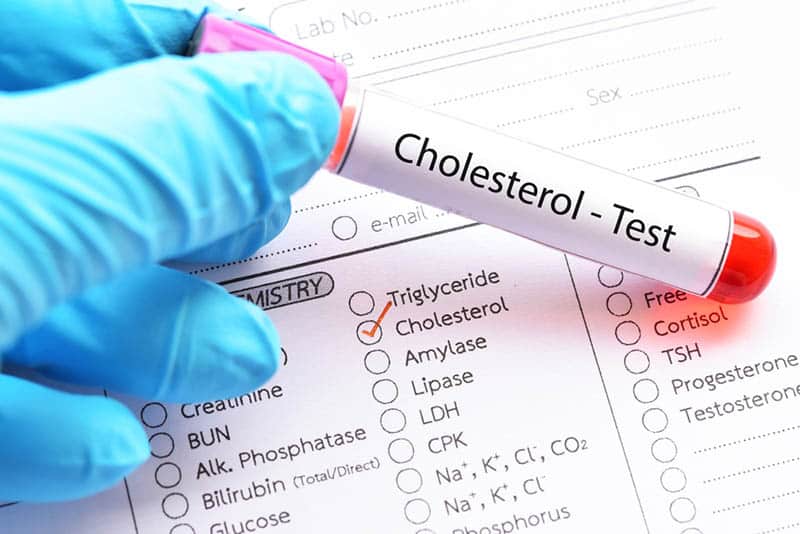
Another thing fructose can do is raise VLDL cholesterol in your little one’s body.
It accumulates fat around different organs and might even lead to heart disease.
What is VLDL cholesterol? It’s very-low-density lipoprotein cholesterol.
The liver produces it and its main function is to supply the body and different organs with triglycerides.
Therefore, your baby’s body needs VLDL cholesterol, but the problem arises when she gets too much of it.
Unwanted calories and heart disease

Also, fructose can make your baby overweight and causes obesity.
Of course, all of these unwanted calories will boost her risk of developing different diseases, especially heart disease.
Fatty liver disease
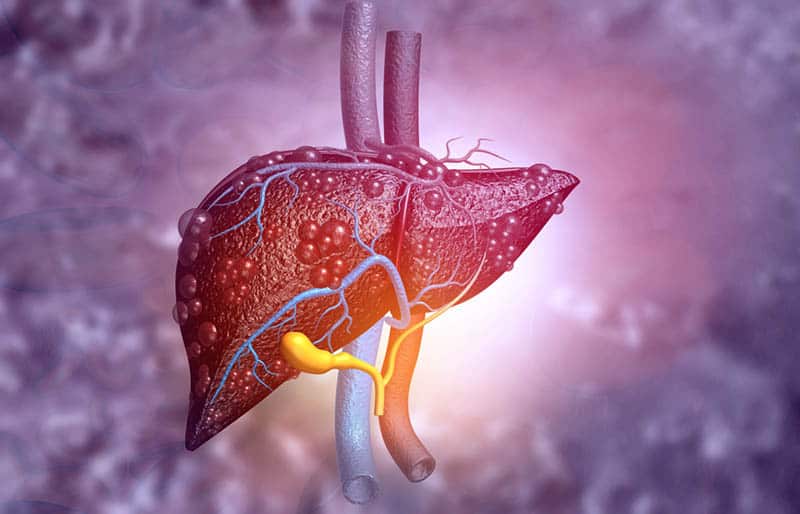
Glucose can be processed by every cell in your baby’s body. However, this isn’t the case with fructose.
The only organ that has the ability to process fructose (especially when we’re talking about large amounts of fructose) is the liver.
Therefore, if your baby ingests too much fructose, her liver will quickly become overloaded.
So, what does the liver do with all of this excess fructose? Will it find a way to eject it from the body?
No, the liver will start turning fructose into fat, and this fat might raise the level of triglycerides in your baby’s blood, which is never good.
Not only that, but the liver also preserves certain amounts of this fat, which might be even more hazardous.
All of this can lead to fatty liver disease.
Some of the symptoms include pain, abdominal swelling, and an enlarged spleen.
In babies, there is usually no inflammation of the liver, but that doesn’t make this disease any less serious.
Effect on the skin
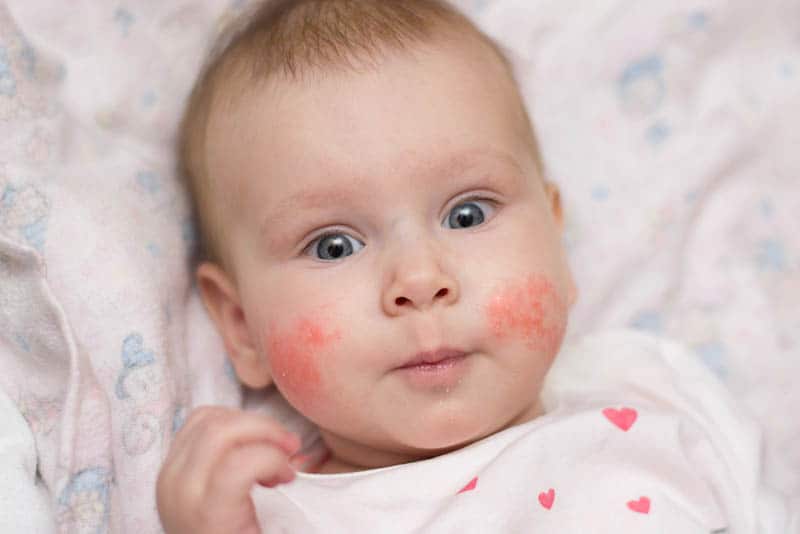
If you’re wondering: Can babies have agave? Keep in mind this syrup can cause dermatitis or skin irritation.
Even though some claim applying agave syrup directly to the skin can help with different bacteria, especially staph aureus, there is another side to the coin.
The truth is it has antimicrobial features, but there are also some potentially harmful side effects to your little one’s skin.
Healthier Sugar Alternatives
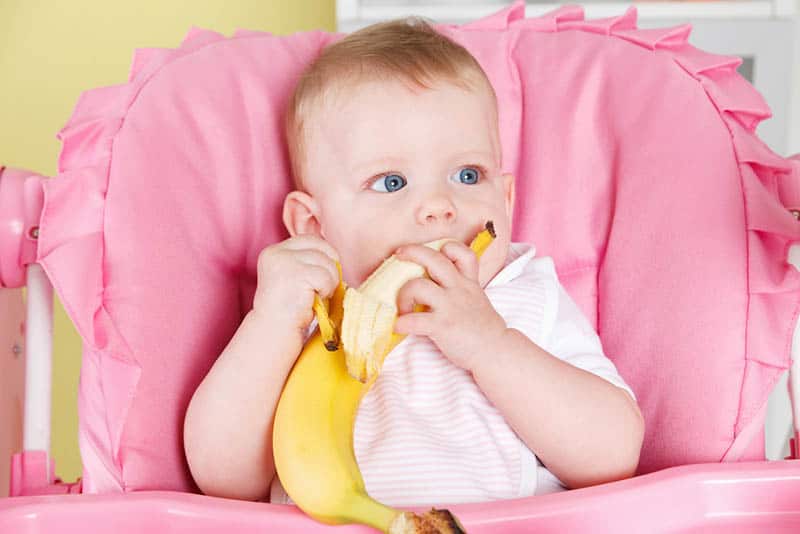
You know sugar is bad for your baby, but does that apply to fruits as well?
No, as fruits contain natural sugar that is not harmful to your baby.
Therefore, it’s always better to introduce fruits to your child’s diet rather than give them different sweeteners.
Here are some of the sugar alternatives that are definitely a better choice than agave syrup:
• Dates
• Honey (but only with children over one year of age)
• Apple
• Banana
• Figs
You can blend these fruits for your infant, or cut them into sticks if you’re incorporating foods for baby-led weaning.
You can make syrups, purees, and include them in different food recipes for your baby.
To Wrap Up – Can Babies Eat Agave?
Can babies have agave?
Well, it’s not the most hazardous thing in the world, but nevertheless, it’s not safe to use it in large amounts either.
It’s one thing if you give it to your little one as a cough remedy every once in a while – that won’t cause any harm.
It’s not safe to use it as a sugar alternative, however, as there are much healthier substitutes available.
READ NEXT: Can Babies Have Garlic And What Are Its Health Benefits
References:
• American Academy of Pediatrics. (September 7, 2015). Using Over-the-Counter Medicines With Your Child. Healthy Children website.
• Paul, I. M., Beiler, J. S., Vallati, J. R., Duda, L. M., & King, T. S. (2014). Placebo effect in the treatment of acute cough in infants and toddlers: a randomized clinical trial. JAMA pediatrics, 168(12), 1107–1113.
• U.S. Food & Drug Administration. (November 27, 2018). When To Give Medicine For Cough And Colds. FDA website.
Like this post? Please share or pin it for later. You can also stay in the loop and follow us on Facebook, Instagram or Pinterest.
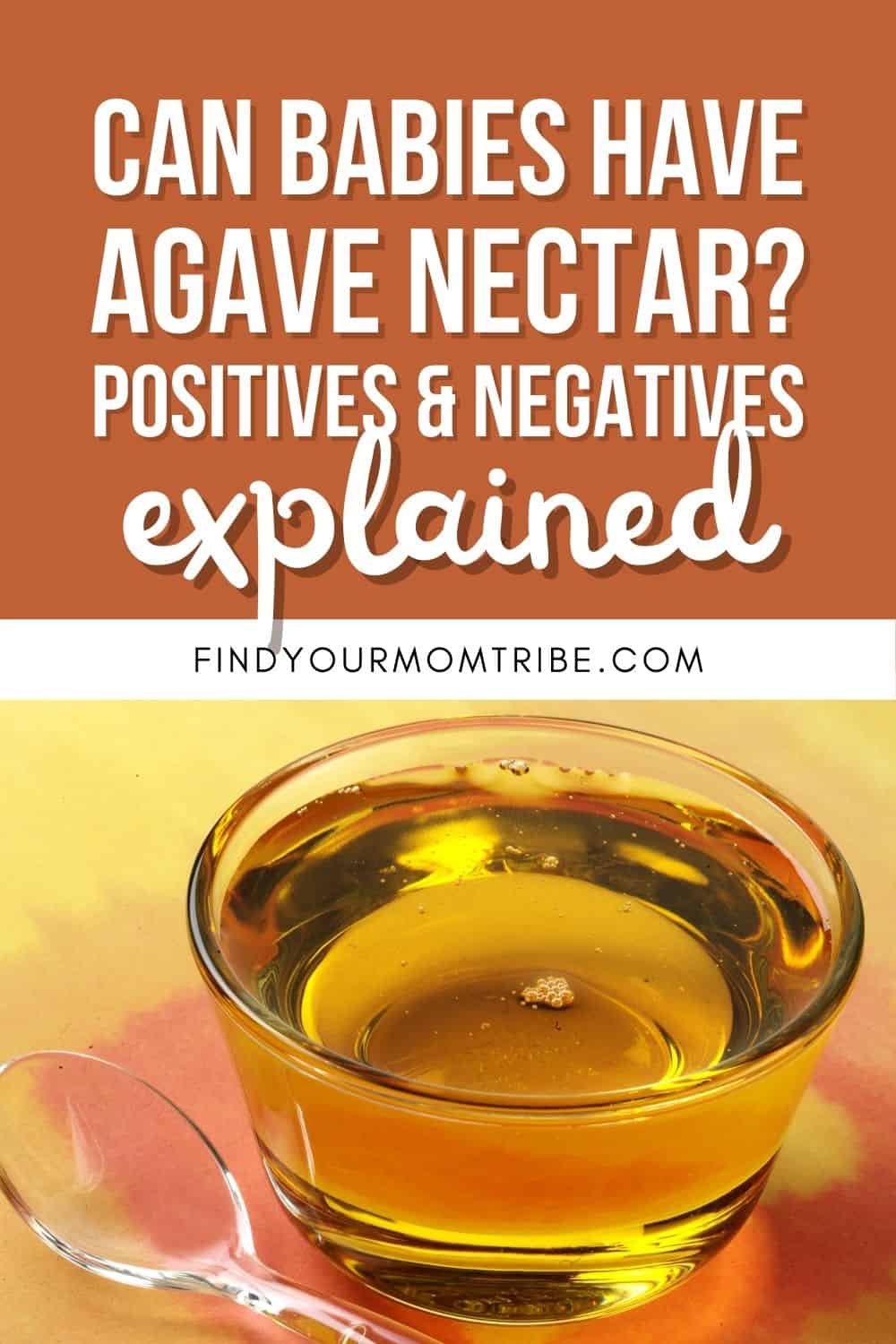
We love honesty! Find Your Mom Tribe is an Amazon Associate and we earn from qualifying purchases through affiliate links at no extra cost to you. Please see our full Amazon Affiliate disclosure for more information.

